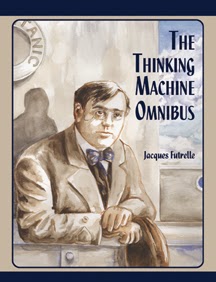 A U.S. Marine is ambushed in a hotel bathroom. With the door locked, how can the killer have escaped?
A U.S. Marine is ambushed in a hotel bathroom. With the door locked, how can the killer have escaped?
This exclusive short story is the first chapter of my upcoming novel, The Locked Room. Acting as a sort-of-prologue, the plot introduces us to Kenneth Rhys as he investigates the death of a U.S. Marine.
For more information and further chapters of the upcoming book The Locked Room, check out
The Locked Room (Book).
The Locked Room - Chapter 1 - Private Eye
The short story is available in its entirety below. If you want to read on your Kindle you can download it
here (send to Kindle instructions
here).
Author: P.J. Bergman
Date: 2014
Word Count: 8,000 (about 30 pages)
© 2014, P.J. Bergman. Any unauthorized reprint or use of this material is prohibited. No part of this book may be reproduced or transmitted in any form or by any means, electronic or mechanical, including photocopying, recording, or by any information storage and retrieval system without express written permission from the author. Extracts may be used, provided that full reference to the source is available to the reader.
(1)
The manuscript had arrived that morning. At first Anthony withheld from opening it, toying gently with the corner of the adhesive flap as he examined the lopsided postmark on the envelope. He didn’t need to look inside to identify the author. The stamp in the corner would have been enough, but the distinct handwriting that formed the barely legible address on the front served to reinforce his suspicions.
At one time the handwriting had been as familiar to Anthony as his own. Notes littered around the apartment they shared would detail small tidbits of the cases they were working on, or outline a few of the bizarre incidents in which they found themselves. Despite his best efforts, Anthony couldn’t bring himself to throw out the deluge of paper scraps that now occupied a dusty box in the corner of his office. His brother always had been one for writing, and judging from the weight of the package Anthony now found in his hands the intervening years had proven no exception.
He ran his finger along the underside of the flap, the sticky residue giving way to reveal the contents of the envelope. The ease at which the paper separated suggested that the package had previously been opened and resealed, either innocently during transit or after an inquisitive eye had examined the consignment and judged it unworthy of their attention.
Inside the envelope was a thick block of neatly bound paper. Carefully wrapped around the manuscript a stiff card cover added weight to the already cumbersome package. Displayed prominently on the front were three handwritten words: The Locked Room.
Anthony hesitantly turned over the card to reveal the first page. A folded yellow note slid down the paper before being halted by his palm.













